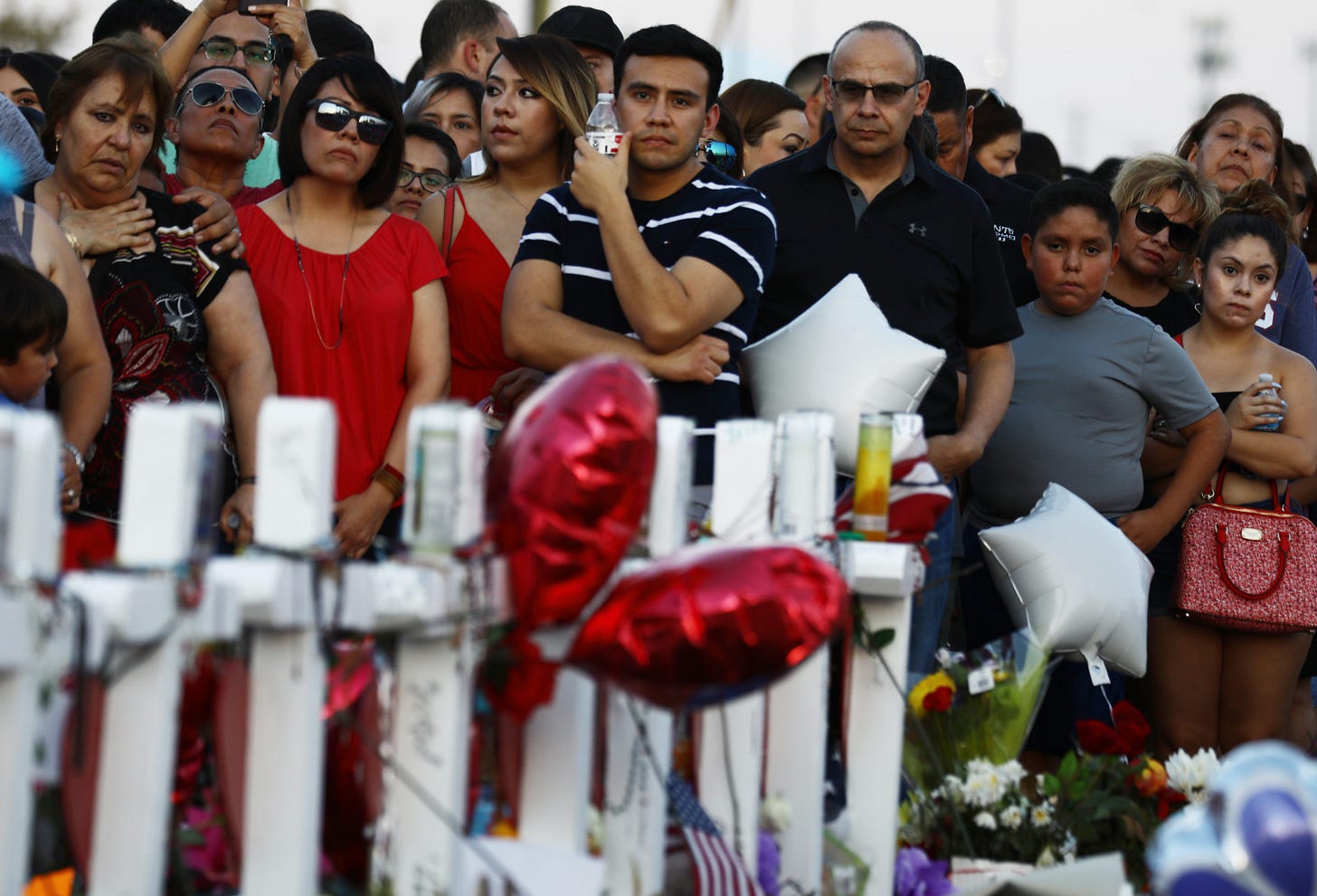What Laws Stand in the Way of 8Chan’s Hate-Mongering? Virtually None.
If only there were a lawmaking body that would do something about that.

Last weekend, gunmen killed 31 people in mass shootings in El Paso and Dayton, events that are becoming as characteristically American as apple pie and baseball. In El Paso, Texas, 22 people, mostly Hispanic, lost their lives at a Walmart, including a 24-year-old mother shielding her two-month-old infant.
The El Paso massacre is the third linked to 8chan, an online messaging board known for anonymous beckonings of hate and extremist violence. The El Paso shooter posted a manifesto on 8chan minutes before the shooting, proclaiming that “this attack is a response to the Hispanic invasion of Texas.” The suspects in the Christchurch mosque and San Diego synagogue shootings also ranted on 8chan in advance of their crimes earlier this year.
The legal question of the week is this: How do perpetrators get away with threats of violence on the Internet?
The first thing that comes to mind is the First Amendment to the U.S. Constitution, which broadly protects free speech, even hateful speech. Laws that discriminate on the basis of the speaker’s viewpoint are “presumptively unconstitutional.” Why? As the Supreme Court explained as recently as 2016 in Matal v. Tam, “[a] law that can be directed against speech found offensive to some portion of the public can be turned against minority and dissenting views to the detriment of all.”
This notion of fairness for everyone is an important one to keep in mind these days—and not just for free speech. Limiting the powers of government protects everyone. If the government is allowed to pick on any one person based on political ideology, socioeconomic power, religion, skin color, or the like, then pretty soon it can pick on everyone else, too, and we are no longer living in a democracy.
But the First Amendment’s protections are not absolute. Hate speech can go too far even for the Supreme Court. The government can ban or punish speech that makes true, direct threats of immediate violence. In 2003, for example, the court held in Virginia v. Black that a state can criminalize Ku Klux Klan cross-burning if it’s “carried out with the intent to intimidate” and is “likely to inspire fear of bodily harm or death” on the part of those targeted.
While the First Amendment has prompted the court to set a very high bar for banning speech, a law passed by Congress regarding speech on the internet sets an even higher bar.
Section 230 of the Communications Decency Act, adopted in 1996, insulated internet companies from lawsuits (particularly libel, which makes it illegal to publish a false statement that damages a person’s reputation, but also other torts and crimes) based on content that’s posted by third parties. Section 230(c) says: “No provider or user of an interactive computer service shall be treated as the publisher or speaker of any information provided by another information content provider.” Online companies that host or republish user-generated material are insulated from a range of laws that might otherwise hold them accountable for publishing objectionable content.
Because courts have interpreted the statute very broadly, Section 230 allows more speech on the internet than the First Amendment would allow all on its own.
Arguably, the statute’s protections for internet companies did not anticipate how consumers and others would use the web in the future. In 1996, the internet was in its infancy. Today, it looks very different, and the harms caused by the lack of meaningful regulation are myriad and palpable.
It might be time for Congress to revisit Section 230 with the goal of disincentivizing technical service providers from carrying sites like 8chan while at the same time protecting speech based on content, as the mere threat of litigation operates to deter bad conduct. The same goes for laws against negligence, breach of contract, speeding, robbery, and a whole host of other human or corporate behaviors that society wants to temper. The vast majority of people conform their behavior to abide by those laws because, among other reasons, they don’t want to face the legal consequences.
Laws aside, the 22 deaths in El Paso are what motivated 8chan’s website security firm to stop protecting what it called a “cesspool of hate” from cyberattacks. As a result, 8chan went dark, but not for long. Another firm swiftly stepped in, however briefly. The next chapter in the story remains to be seen.
Let’s face it: There are probably more humane ways of modulating the internet’s “Wild West” than with the lives of innocent Walmart shoppers. Congress, once again, needs to find the courage to do its job.


